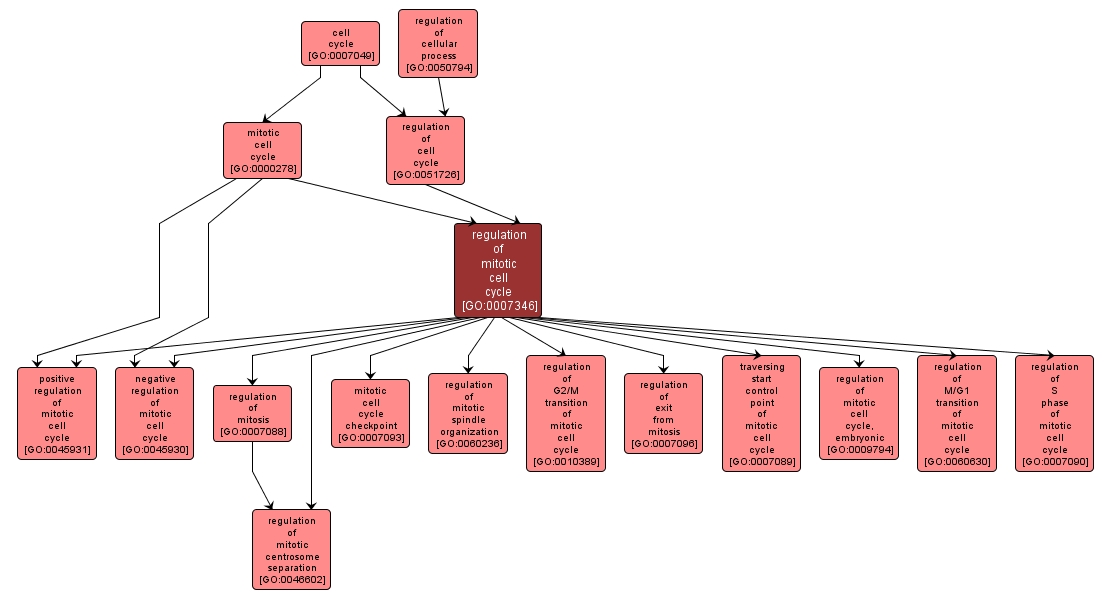GO TERM SUMMARY
|
| Name: |
regulation of mitotic cell cycle |
| Acc: |
GO:0007346 |
| Aspect: |
Biological Process |
| Desc: |
Any process that modulates the rate or extent of progress through the mitotic cell cycle. |
Synonyms:
- modulation of mitotic cell cycle progression
- mitotic cell cycle modulation
- regulation of progression through mitotic cell cycle
- mitotic cell cycle regulation
- mitotic cell cycle control
- control of mitotic cell cycle progression
- mitotic cell cycle regulator
- regulation of mitotic cell cycle progression
|














